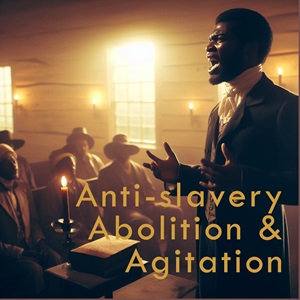

Study Areas
About Us
history...
"History, n. An account mostly false, of events mostly unimportant, which are brought about by rulers mostly knaves, and soldiers mostly fools."
Ambrose Bierce, The Devil's Dictionary, 1906.
"The history of an oppressed people is hidden in the lies and the agreed-upon myth of its conquerors."
Meridel Le Sueur, Crusaders, 1955.
"The only thing new in the world is the history you don't know."
Harry S Truman, quoted in Merle Miller, Plain Speaking, 1982.
I've always loved history, but disliked grade school history class. Perhaps it's because I've never felt the reverence that some profess for ancient deeds of valor, nor held any ground hallow. Call it a cultural disconnect from American Shintoism, but I prefer my national ancestors with calloused hands, uncertain loyalties, misguided convictions and battered souls. Human beings.
"Our Forefathers" dominated history class when I was in school. Inculcated with a litany of their doctrines, addresses, compromises and declarations, we capitalized the group as if they were gods, or at least possessed of divine guidance. History class ignored those who, in the social-moral-legal-economic-political chaos that was early America, simply made the wrong choice; those who deserted the ramparts when the enemy charged, hanged the wrong man, backed the losing party, wandered into a blizzard, bought swampland, sold swampland, insulted the judge. Human beings.
History class loved winners. History class ignored everyone else.
History class ignored African Americans, Native Americans, Latinos, Asians, and women. Not because they lacked accomplishment, vision, spirit, morality or heart. They simply were not the winners. White Anglo tradition prevailed on this point, and held sway for generations. That was the situation when I was in high school. Fortunately, things are different in the schools now, and modern educators include these formerly ignored groups.
"Slavery In Pennsylvania," the original database of Pennsylvania slaveholders and slaves--the internet ancestor of the Afrolumens Project--was born in 1992 as a personal collection of newspaper clippings, Xeroxed magazine and journal articles, and handwritten transcriptions of dusty county documents. It was my response to history class. It was gritty and unpleasant, full of unsavory characters making bad choices and exhibiting human behavior. It also had a cast of hitherto ignored characters described in archaic terms such as "wench," "yellow," "colored," "negress" and "molatress." It was all about human beings, and it was all new to me.
Afrolumens Project
The launch of the Afrolumens Project was meant to mark the tenth anniversary of those beginning efforts at uncovering local hidden history. It's mission today is to pick up where Slavery In Pennsylvania left off, continuing the research into central Pennsylvania's African American history from the beginning of slavery through the present day, and to combine the various eras into a cohesive shared history of our region. A human history.
The history is out there, buried in dusty archives and unlit corners, on rolls of microfilm and microfiche, filed in library cabinet drawers. It is "hidden in plain sight," not due to malicious intent, but out of ignorance and tradition. A tradition that, fortunately, has been fading these past few decades.
"Afro," relating to African American studies, and "lumens," a measurement of light derived from the Latin word lumin, meaning "light opening." The mission of the Afrolumens Project is to bring to light the under-told history of African Americans in central Pennsylvania.
George F. Nagle, Afrolumens Project Founder
January 2002, revised March 2023
"The man who finds a truth lights a torch."
Robert G. Ingersoll, "The Truth," 1897.
